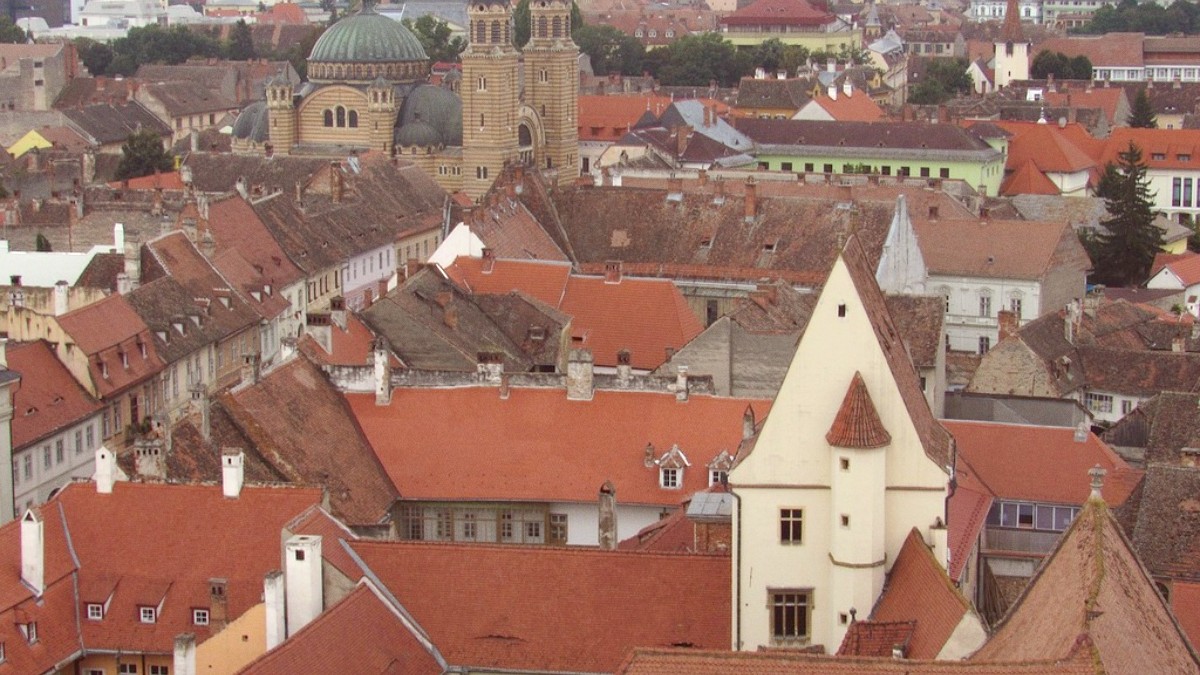
Transylvania, Romania
Romania has many protected natural areas, including national parks (e.g., Retezat National Park) and nature reserves, many in the Carpathian Mountains. Support ecotourism and conservation projects that protect biodiversity. Observe protected area rules and guidelines.
Recycling infrastructure is developing in Romania. Reduce your waste. Use a Reusable water bottle and a reusable shopping bag. Dispose of waste in designated bins, or general waste responsibly if recycling bins are unavailable.
Mindful water consumption is encouraged. Take shorter showers; turn off taps. For flight emissions, consider carbon offset programs from airlines or third-party organizations like Terrapass. These contribute to projects that reduce greenhouse gases.
Approaching local culture with respect enriches your travel experience and fosters positive interactions.
Support local artisans and cultural institutions that uphold traditional crafts, music, dance, and heritage. Purchasing authentic handmade goods or attending traditional performances contributes to the continuity of these traditions. Consider sustainable outdoor gear from Patagonia, and reusable products from Package Free Shop for responsible consumption.
Learning a few basic Romanian phrases (e.g., "Bună ziua," "Mulțumesc") is a simple way to show respect and can foster warmer interactions. Practice politeness and patience. A smile and a civil demeanor go a long way. Ask for permission before photographing individuals, especially in rural areas or during religious ceremonies. Respect their privacy if they decline.
Avoid intrusive photography, specifically of individuals without their clear consent. Do not photograph military installations, police, or sensitive government buildings. Be aware of your surroundings and consider whether your photography is disruptive or disrespectful to the local environment or people.
Dress modestly (shoulders and knees covered) when visiting churches and monasteries. Maintain quiet and respect within religious spaces. Avoid disrupting services or private worship. Some sites may have specific rules about photography inside; observe these indications respectfully.
Acknowledge greetings, try a few local phrases, and engage positively with residents.
Seek out local festivals or workshops to witness and support traditional practices.
Traveling with an open mind and a respectful attitude contributes positively to cultural exchange.
Your visit to Sibiu can significantly benefit the local economy and communities.
Seek out stays in guesthouses in smaller villages around Sibiu or participate in activities that directly benefit local communities. This helps distribute tourism income beyond the main city centers. These initiatives often give authentic cultural experiences.
Purchase souvenirs and goods directly from local artisans and markets, like Piața Cibin. This ensures your money goes straight to the producers and their families. Avoid purchasing items made from endangered species or unethically sourced materials. Your choices have a direct impact on local livelihoods.
Prioritize local restaurants, cafes, and shops over international chains. This keeps money circulating within the local economy and supports local jobs. Choose locally owned guesthouses over large international hotel chains when possible. Every local purchase makes a difference.
Be aware of common tourist scams. Do not engage in activities that exploit animals (e.g., unethical animal tourism) or local populations. Educate yourself on responsible tourism practices. For flight compensation due to delays or cancellations, consider services like Compensair, which operate ethically. For airport lounge access, check Priority Pass.
If you choose to donate, direct your contributions through reputable local charities or non-governmental organizations (NGOs) rather than giving directly to beggars. Direct giving can sometimes support organized begging rings or perpetuate cycles of dependency. Research local causes if you wish to contribute to community welfare. For conservation, consider organizations like The Rainforest Site.
Seek out NGOs with transparent operations and clear community goals.
Contributions to established charities have a broader, sustainable impact.
Identify local needs and organizations that align with your values.
Thoughtful giving channels your generosity to where it can truly support communities and conservation.
Your travel decisions influence the well-being of the planet and its people.
Make thoughtful choices about what you consume. Opt for products with less packaging. Support businesses committed to ethical sourcing.
If you participate in wildlife tours or activities, ensure they prioritize animal welfare and conservation. Avoid any interactions that involve direct contact with wild animals, feeding them, or activities that disrupt their natural behaviors. Choose operators that follow ethical guidelines and contribute to animal protection.
Contribute to energy conservation by turning off lights and air conditioning when leaving your accommodation. Opt for public transport or walking when possible. These small actions collectively reduce the overall carbon footprint of your journey and contribute to more sustainable tourism practices within the region.
Consider supporting local initiatives that focus on education or health improvements within Sibiu and surrounding communities. Your contributions, made through legitimate organizations, further local development and directly improve the lives of residents. This thoughtful engagement creates a positive and lasting impact beyond your visit.
It includes respecting local laws, being culturally sensitive, and minimizing environmental disruption. Your actions as a traveler shape the perception of visitors and contribute to a healthier tourism ecosystem.
Familiarize yourself with local regulations and adhere to them.
Engage authentically with local traditions and people.
Reduce waste, conserve resources, and leave places as you found them.
Be vigilant against scams and report any suspicious activities. Your safety and the well-being of the local community are important.
Conscious travel choices collectively contribute to a more sustainable and equitable world for everyone.